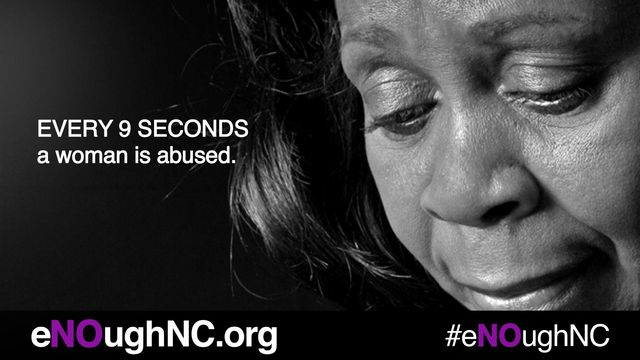Ending abuse requires legal, cultural change
Emotional and cultural shame, fear and forgiveness combine to keep individuals in a risky situation, say those familiar with the cycle of domestic violence.
Posted — UpdatedIt takes courage to step out of an abusive relationship, or even to call the cops on someone you love.
Emotional and cultural shame, fear and forgiveness combine to keep individuals in a risky situation, say those familiar with the cycle of domestic violence.
"Once its reached the criminal justice system, typically, it's already happened more than once," said Sgt. John Guard of the Pitt County Sheriff's Office.
Guard trains officers across the state how to handle domestic violence. His program is an example of increasing awareness for a crime once considered a family matter. There were no programs to prepare officers to diffuse a domestic violence situation when he started his career in law enforcement 22 years ago.
"We're still relatively new in the amount of training we have," Guard said.
The treatment of domestic violence has evolved, from the first response through the court system and up to the penalties imposed.
Thelma Cole suffered at the hands of a partner who would strangle her until she passed out.
After she got out of that relationship, she petitioned state lawmakers to increase strangulation from a misdemeanor to a felony. That 2004 act dramatically strengthened the state's domestic violence laws.
"That was absolutely a landmark bill because it was so broad," Guard said.
Prosecutor Marci Trageser is among those who enforces those laws in Chatham County.
"When I first started working here, I had a victim who said, 'He's going to kill me no matter what.' And he did," she recalled.
Peggy Locklear was killed by her husband Woodie Locklear in 1998 in Harnett County.
"Battered women can predict their own deaths, and oftentimes they do," pointed out victims' advocate and filmmaker Kit Gruelle.
At first, Trageser was so distraught by Locklear's death that she considered quitting. Then she vowed to work even harder to protect other victims.
"I promised that I would not give up (on) each victim that came to me," Trageser said.
"I love the fact that you no longer have a court system that tolerates physical abuse if the evidence is present," she said.
But as victims get more courageous, Trageser sees a court system struggling with how to support them.
"I think one of the strongest things our system now faces is the non-violent displays of aggression and control," she said.
"There's just another way to assert power and control, and that is through cyber-stalking," Trageser said, "It is through following their every move."
Gruelle agrees.
"We have to be very clear that domestic violence is much, much more than physical abuse," she said.
"Get past this notion that it's about black eyes and broken noses. It's about control. It's absolutely about control," she said.
Advocates continue to push for expanded prosecution ability and a cultural shift that would take the onus off the victim to leave.
"I've long said, if we wait for the criminal justice system to respond, we've waited too long," said Guard.
"It should never be about just what happens in a courtroom," Gruelle seconded.
"It can't just be up to law enforcement. It can't just be up to advocates. It has to be up to the community at large to change the way they think about violence against women."
Guard said he'd like to see men take the lead in defining abusive behavior as just plain unacceptable.
"My opinion is, until society steps up and says violence in the home is wrong and really lowers that bar, we're going to be slowing down our progression toward the ultimate goal, which is eradicating violence," he said.
eNOugh domestic violence: eNOughNC
• Credits
Copyright 2024 by Capitol Broadcasting Company. All rights reserved. This material may not be published, broadcast, rewritten or redistributed.






